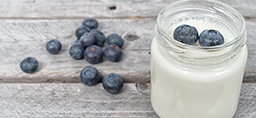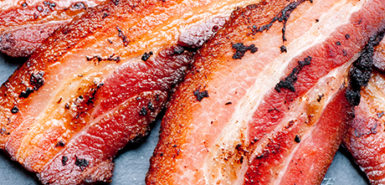
In the back-and-forth world of food health studies, nuts are the latest item to switch from the “bad for you” to “good for you” list.
Remember eggs and the high cholesterol warnings? Then apple juice tainted with the dangerous chemical alar? Both foods are firmly back on the approved eating list.
A new study published in the International Journal of Epidemiology says that eating a handful of peanuts daily can ward off major diseases and even prevent an early death. You know—the same nuts that are banned from many public spaces for fear of sending allergic visitors into anaphylactic shock.
Specifically, the study said that both men and women who eat nuts regularly are helping to protect themselves from respiratory disease, cardiovascular disease, cancer, neurodegenerative disease and diabetes.
“Nuts have been praised for years for their health benefits in regard to heart disease because of their high amount of monounsaturated fat. It’s not surprising that they are finding additional health benefits,” said Annie House, RD, CDE, diabetes program coordinator at Spectrum Health Medical Group.
Still, House cautions people who may look to peanuts as the newest miracle food.
“When discussing nuts as a part of a healthy diet, I like to stress two things with patients,” House said. “Both of them are mentioned in this study: portion size matters and processing makes a difference.
“A 10-gram serving is only around 12 peanuts,” she said. “It is important to note that in this study, they did not see additional benefit with a serving size greater than 15 grams. Also, if your nuts have added salt, sugar or less healthy oils—as in certain peanut butters, for example—you are neutralizing some of those health benefits by adding nutrients that have negative health effects.”
House also cautions nut eaters who are watching their weight.
“While monounsaturated fat is good for you, nuts in general carry a lot of calories,” she said. “Overdoing portion sizes can sabotage weight loss, if that’s your goal.”
If health-minded people are walking around armed with their daily dose of peanuts, does that pose a risk for the estimated 3 million people in the United States living with nut allergies? Children seem to be of particular concern. Studies show the number of children allergic to peanuts tripled from 1997 to 2008.
“I wouldn’t let this be a worry,” House said. “Nut allergies, like many other allergies, range in severity. Those who experience severe reactions when exposed should be cautious in general and make sure to have conversations with the people they are close to about risk.”
While the study involved adults, House encourages children (who do not have a related food allergy) to eat nuts regularly as well.
“Nuts and legumes are a nutritious part of children’s diets,” she said. “When adding any new food to your child’s diet, parents should observe them for any sign of a reaction. And, for very young children, choking can be a concern, so be mindful with choices and monitor them closely with nuts and any food that could be a risk.”
 /a>
/a>
 /a>
/a>
 /a>
/a>